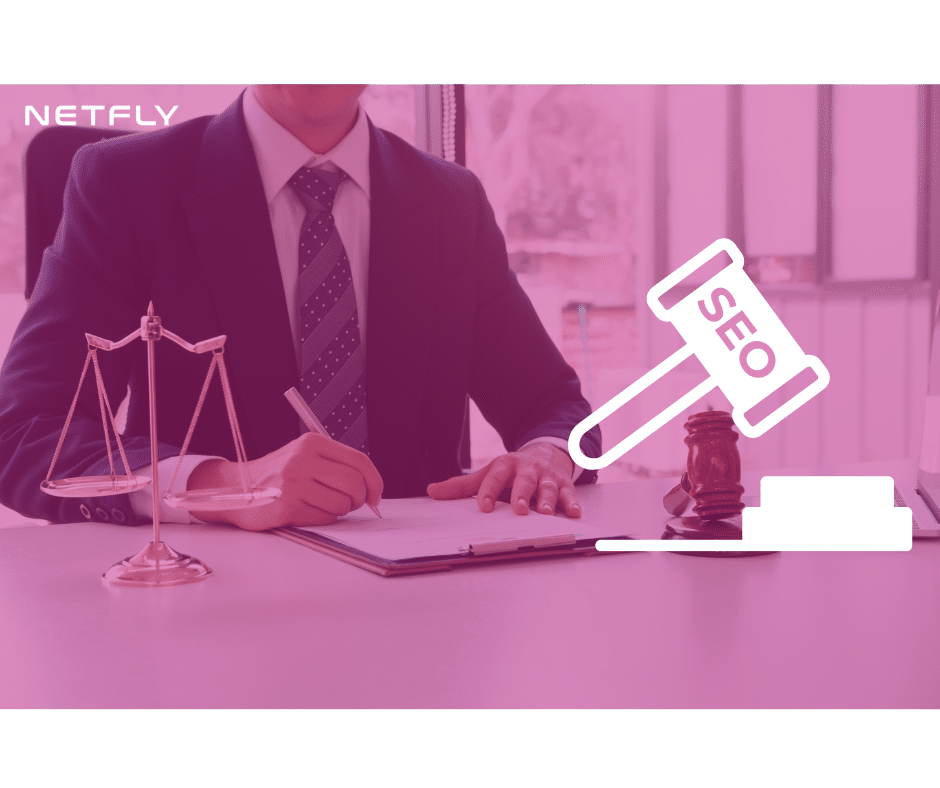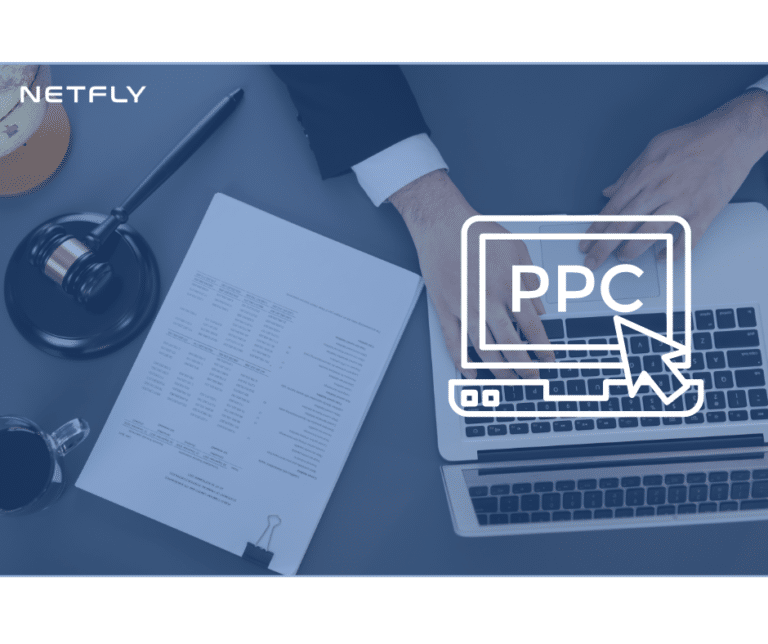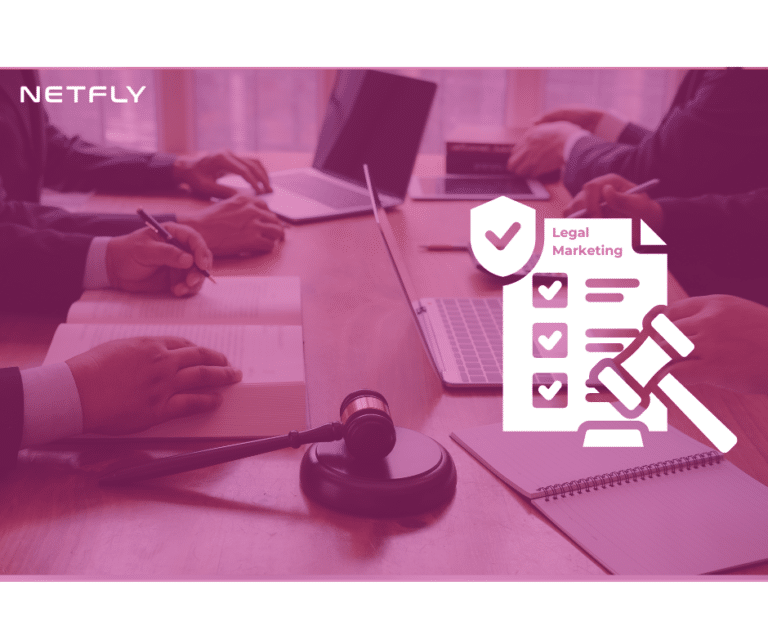In an increasingly digital world, mastering SEO for personal injury lawyers is not just advantageous—it’s essential. This detailed guide will explore the critical SEO strategies that can elevate your law practice’s online presence. From optimizing on-page elements to effective keyword research and local SEO tactics, each section offers insights tailored to the unique needs of personal injury law firms. Understanding how to manage online reviews and track analytics will further enhance your ability to attract and retain clients. Discover how focused SEO efforts can transform your practice into a highly visible, client-attracting powerhouse.
Key Takeaways
- Optimize meta tags and descriptions with relevant keywords to improve search engine visibility.
- Implement effective backlink strategies like guest blogging and local directories to build authority.
- Use tools like Moz and Ahrefs to track and enhance backlink quality and quantity.
- Focus on local SEO tactics, including optimizing Google My Business profiles and building authoritative citations.
- Encourage and manage client reviews to enhance online reputation and local search rankings.
Understanding SEO Basics
Understanding the fundamentals of Search Engine Optimization (SEO) is essential for personal injury lawyers aiming to enhance their online visibility and attract potential clients. At the core of SEO are technical elements such as meta tags and backlink strategies, which serve as foundational components for a robust online presence.
Meta tags, including title tags and meta descriptions, play a pivotal role in how search engines interpret and rank your website. Title tags should be concise, incorporating primary keywords and reflecting the content of the page. Meta descriptions, although not a direct ranking factor, influence click-through rates by providing a brief summary that entices users to visit your site.
Backlink strategies are another critical aspect of SEO. High-quality backlinks from reputable websites signal to search engines that your content is authoritative and trustworthy. Effective strategies include guest blogging, participating in industry forums, and leveraging local business directories. Tools like Moz and Ahrefs can help in tracking the quality and quantity of backlinks, ensuring your efforts yield tangible results.
Keyword Research
Conducting thorough keyword research is essential for personal injury lawyers to identify high-value search terms that potential clients are actively using. This process begins with a detailed understanding of search intent and extends to the in-depth evaluation of keyword metrics. Effective keyword research involves the utilization of tools like Google Keyword Planner, Ahrefs, and SEMrush to gather data on search volume, keyword difficulty, and trends.
Competitor analysis plays a vital role in this phase. By examining the keywords that top competitors rank for, personal injury lawyers can uncover untapped opportunities and benchmark their own performance. This involves analyzing competitors’ domain authority, backlink profiles, and the keywords they are targeting. Tools such as Moz and SpyFu can provide invaluable insights into competitors’ SEO strategies.
Keyword difficulty is another important metric, indicating how challenging it is to rank for a specific term. Keywords with high difficulty may require more resources and time to achieve desired rankings, whereas low-difficulty keywords may offer quicker wins. Balancing keyword difficulty with search volume ensures a strategic approach, targeting terms that can yield substantial traffic without excessive competition. This data-driven methodology is foundational for an effective SEO strategy tailored to personal injury law practices.
On-Page Optimization
On-page optimization for personal injury lawyers involves meticulously refining individual web pages to achieve higher rankings and attract more relevant traffic through targeted keywords and technical enhancements. A foundational aspect of this process is the optimization of meta descriptions. These snippets, displayed in search engine results, should be crafted with precision, incorporating primary keywords and a compelling call-to-action to boost click-through rates.
Technical proficiency in image optimization is another critical component. High-resolution images should be compressed to reduce page load times, a factor that greatly impacts user experience and search engine rankings. Additionally, alt text must be descriptive and keyword-rich to enhance searchability and accessibility.
Internal linking is equally important, as it distributes link equity across your site and helps search engines understand the contextual relevance of your pages. Implementing structured data, or schema markup, can provide enhanced search results through rich snippets, improving visibility.
Content Creation
Content creation for personal injury lawyers must prioritize targeted keyword research and engaging blog topics to enhance search engine visibility and client engagement. By integrating data-driven keyword strategies, lawyers can pinpoint high-traffic search terms that potential clients are using. Additionally, crafting informative and relevant blog content can position the law firm as an authoritative source, thereby increasing organic traffic and conversion rates.
Targeted Keyword Research
Effective targeted keyword research is fundamental for creating high-ranking content that drives clients to personal injury law services. By identifying the most relevant and high-traffic keywords, personal injury lawyers can tailor their content to meet the specific needs and search behaviors of potential clients. This process begins with a thorough competitor analysis to understand which keywords are successfully driving traffic to rival firms’ websites. Tools like SEMrush and Ahrefs can offer valuable insights into competitors’ keyword strategies, allowing for data-driven decisions.
Understanding search intent is equally essential. Prospective clients searching for ‘personal injury lawyer’ may have different intents, ranging from finding legal representation to seeking information about personal injury laws. Utilizing tools like Google’s Keyword Planner can help identify the search volume and competitiveness of various keywords, ensuring that the selected terms align with the users’ intent.
Furthermore, long-tail keywords such as ‘best personal injury lawyer in [city]’ can attract more qualified leads by targeting specific geographic locations. Integrating these keywords naturally into your content not only enhances SEO but also improves user experience, making it easier for potential clients to find the information they need. This strategic approach to keyword research can significantly elevate a personal injury lawyer’s online visibility and client acquisition.
Engaging Blog Topics
Crafting engaging blog topics is pivotal for personal injury lawyers aiming to boost their SEO rankings and attract a targeted audience. High-value content, such as client testimonials and detailed case studies, can greatly enhance search engine performance by improving keyword relevance and dwell time. According to HubSpot, blogs with customer testimonials generate 62% more organic traffic compared to those without. Incorporating these elements not only humanizes the practice but also builds trust and credibility.
Case studies are another potent tool. They provide a structured narrative that highlights successful outcomes, demonstrating expertise and experience. Moz reports that case studies can increase website traffic by 37% when optimized with appropriate keywords. This type of content allows potential clients to visualize the process and results, fostering a deeper connection with the legal services offered.
In addition to these, consider writing about common personal injury topics, frequently asked questions, and legal updates. Use data-driven insights to identify trending topics and integrate long-tail keywords to capture specific queries. By maintaining a consistent posting schedule and utilizing SEO best practices, personal injury lawyers can effectively engage their audience and enhance their online visibility.
Local SEO Strategies
Effectively mastering local SEO strategies is essential for personal injury lawyers to dominate their regional market. Key tactics include optimizing Google My Business profiles, utilizing local keywords to enhance geographical relevance, and building authoritative citations to improve local search rankings. Implementing these strategies can greatly increase visibility and client acquisition in the targeted area.
Google My Business Optimization
Optimizing your Google My Business profile is essential for improving local search visibility and attracting potential clients in the highly competitive personal injury law sector. Ensuring profile completeness is an important first step. A thorough profile includes up-to-date contact information, office hours, and a detailed description of your services. Studies indicate that profiles with detailed information see 70% more visits and are 50% more likely to lead to conversions.
Regular photo updates are another essential component. High-quality images of your office, staff, and even client testimonials can greatly impact your profile’s attractiveness and credibility. According to Google, businesses with photos receive 42% more requests for directions and 35% more click-throughs to their websites.
Additionally, obtaining and managing client reviews is crucial for building trust and authority. Personal injury lawyers with higher review scores are more likely to appear in local search results, as reviews are a significant ranking factor in Google’s algorithm.
Lastly, leveraging Google Posts to share updates, blog posts, and legal advice can keep your profile active and engaging. These actions collectively enhance your local SEO performance, making it easier for potential clients to find and contact you.
Local Keywords Targeting
Why is local keywords targeting a pivotal component in enhancing the online visibility of personal injury law firms within specific geographic areas? Local keyword targeting is important because it enables law firms to appear in search results relevant to potential clients within their vicinity. This targeted approach guarantees higher conversion rates as local searches are often performed by individuals in immediate need of legal services.
Conducting thorough competitor analysis is essential to identify the local keywords that rival law firms are ranking for. Tools such as Ahrefs and SEMrush can be employed to dissect competitors’ strategies, uncovering high-value keywords that can be integrated into your content. Focusing on long-tail keywords like ‘personal injury lawyer in [City]’ or ‘accident attorney near me’ can greatly enhance local search visibility.
Effective link building further strengthens local SEO by generating backlinks from reputable local websites and directories, signaling to search engines the relevance and authority of your site. Engaging in partnerships with local businesses, sponsoring community events, and obtaining mentions in local news outlets are strategies to accumulate high-quality backlinks.
Citation Building Essentials
Establishing accurate and consistent citations across various online directories is essential for improving a personal injury law firm’s local search engine visibility and credibility. Citations, which include the firm’s name, address, and phone number (NAP), are critical local SEO components. Inconsistent or incorrect citations can severely impact search rankings by confusing search engines and potential clients.
Effective citation management involves identifying high-quality citation sources such as Google My Business, Yelp, and legal-specific directories like Avvo and Justia. According to Moz, citation accuracy is one of the top factors influencing local search rankings. Hence, ensuring uniform NAP information across all platforms is paramount.
Leveraging tools such as BrightLocal or Yext can streamline citation management by automating the process of updating and monitoring citations across multiple directories. These platforms also help in identifying and correcting inconsistencies, thereby enhancing local SEO performance.
Furthermore, periodically auditing citation sources is essential to maintain citation integrity. Regular audits help identify outdated or incorrect information that could negatively impact the firm’s online presence. By focusing on citation consistency and leveraging advanced citation management tools, personal injury lawyers can greatly boost their local search engine rankings and attract more clients.
Managing Online Reviews
Managing online reviews is vital for personal injury lawyers, as these reviews greatly impact local search rankings and potential client trust. Positive client testimonials can greatly enhance your online reputation, driving more traffic and leads to your practice. According to a 2022 Local Consumer Review Survey, 87% of consumers read online reviews for local businesses, underscoring their pivotal role in decision-making processes.
To effectively manage online reviews, it is essential to address negative feedback promptly. Responding to negative feedback with professionalism and empathy not only improves client satisfaction but also demonstrates your dedication to resolving issues. A study by Harvard Business Review found that businesses that respond to reviews see a 12% increase in review volume and a higher overall rating.
Encouraging satisfied clients to leave reviews can further strengthen your online presence. Implementing an automated follow-up system or sending personalized email requests can greatly increase the number of client testimonials. Additionally, diversifying review platforms—such as Google My Business, Yelp, and Avvo—ensures a broader reach and improves search engine visibility.
Tracking and Analytics
To maximize the benefits of managing online reviews, leveraging tracking and analytics tools is imperative for personal injury lawyers to gain actionable insights and measure the effectiveness of their SEO strategies. Key performance indicators (KPIs) such as bounce rate and conversion tracking are essential metrics to monitor. A high bounce rate could indicate that visitors are not finding the content relevant or engaging, necessitating a review of site structure and keyword targeting.
Conversion tracking, on the other hand, measures the number of visitors who take desired actions, such as filling out a contact form or scheduling a consultation. Google Analytics is a robust tool that provides detailed data on user behavior, allowing personal injury lawyers to identify which pages are driving conversions and which are underperforming. Implementing goal tracking can further dissect user journeys, pinpointing drop-off points and areas for optimization.
Additionally, integrating heat maps and session recordings can offer visual insights into user interactions, enabling more precise adjustments to improve user experience. By systematically analyzing these metrics, personal injury lawyers can refine their SEO initiatives, ensuring that their digital presence not only attracts but also retains and converts potential clients effectively.
Frequently Asked Questions
How Long Does It Take to See SEO Results for Personal Injury Law Firms?
It typically takes 3-6 months to see SEO results for personal injury law firms. Effective keyword research and content optimization are essential in expediting this process, ensuring improved search engine rankings and increased online visibility.
What Is the Cost of Implementing an SEO Strategy for Personal Injury Lawyers?
Implementing an SEO strategy for personal injury lawyers, including local directories and competitor analysis, can cost between $2,000 to $10,000 per month. This investment varies based on the complexity and scope of the required services.
Can Social Media Activity Impact My SEO Performance?
Yes, social media activity can greatly impact your SEO performance by enhancing brand awareness and generating social signals, which search engines consider as indicators of content relevance and popularity, ultimately improving your website’s ranking.
Are There Any Legal Restrictions on SEO Practices for Law Firms?
Mastering SEO for law firms is akin to walking a tightrope; legal restrictions emphasize ethical marketing and client confidentiality. Adherence to guidelines guarantees compliance, mitigating risks associated with deceptive practices and upholding professional integrity.
How Do I Choose the Right SEO Agency for My Personal Injury Law Practice?
To select the right SEO agency for your personal injury law practice, assess agency credentials, technical proficiency, and data-driven strategies. Verify that contract terms are clear, outlining deliverables, timelines, and performance metrics to align with your goals.
Conclusion
In the field of personal injury law, mastering SEO can be likened to constructing a robust bridge; every foundational element, from keyword research to local SEO tactics, acts as a pillar supporting the overall structure. For instance, firms that optimized their local SEO saw a 46% increase in client inquiries within six months. By meticulously implementing these strategies, personal injury lawyers can greatly enhance their online visibility, ensuring a steady influx of potential clients in need of legal expertise.










